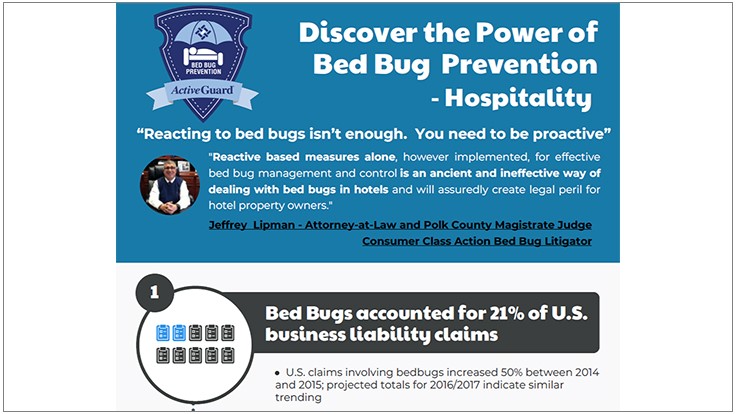Past The Spray: Exploring Advanced Techniques Utilized By Insect Control Experts
Past The Spray: Exploring Advanced Techniques Utilized By Insect Control Experts
Blog Article
Post Created By-Andrews Dickson
Are you tired of depending entirely on sprays to deal with pests in your home or work environment? While sprays can work, pest control professionals have created sophisticated techniques that surpass just spraying chemicals.
These techniques not only offer much more efficient and resilient services, but likewise focus on minimizing the use of damaging pesticides. By exploring these advanced strategies, you will certainly discover an entire new world of parasite control methods that are not only efficient, however also eco-friendly.
So, are you ready to take your insect control video game to the next level?
Integrated Insect Management (IPM)
If you're trying to find an effective and environmentally-friendly technique to pest control, Integrated Parasite Management (IPM) is the option you need. IPM concentrates on long-term prevention and monitoring of pests, as opposed to just counting on pesticides. This strategy considers the details needs and behaviors of pests, as well as the surrounding setting.
By utilizing a mix of methods such as organic control, environment manipulation, and targeted chemical usage, IPM aims to minimize the dependence on chemical treatments and decrease injury to non-target organisms.
https://hanfordsentinel.com/lifestyles/tips-on-keeping-pets-off-the-streets/article_cf1fcd32-3d30-578f-b662-0d06ccfa2277.html of IPM is keeping track of and identifying pests precisely. This entails frequently evaluating and analyzing the pest population, as well as determining the specific species existing. By recognizing the biology and habits of insects, parasite control specialists can develop targeted techniques to interrupt their life cycle and minimize their numbers.
One more vital element of IPM is making use of non-chemical control approaches whenever possible. This can consist of physical obstacles, such as mounting screens or sealing splits and holes, to prevent pests from getting in structures. Additionally, social methods, like correct cleanliness and waste management, can help remove bug food sources and reproducing premises.
When chemicals are essential, IPM focuses on using them carefully and as a last resort. This means picking the least poisonous and most effective alternative, applying it specifically and only to influenced locations, and adhering to all safety standards. By minimizing chemical usage, IPM lowers the prospective risks to human health and the setting.
Biological Control
To further boost the efficiency of Integrated Parasite Administration (IPM), the following subtopic we'll discover is the approach of organic control. This strategy utilizes all-natural killers or parasites to control parasites.
Below are four key elements of organic control:.
1. Introduction of natural adversaries: In this approach, helpful pests or organisms are presented to the location infested with insects. These all-natural enemies victimize the insects, helping to lower their populace.
2. Preservation of all-natural enemies: As opposed to introducing brand-new microorganisms, this method concentrates on developing an appropriate atmosphere for existing advantageous bugs. This can be accomplished with supplying food, shelter, and water sources.
3. Enhancement: Below, the variety of natural opponents is boosted unnaturally by reproducing and releasing them into the ravaged location. This assists to quickly lower the pest populace.
4. Push-pull strategy: This method incorporates repellents and attractants to manipulate the behavior of bugs. Repellents push parasites far from crops, while attractants lure them towards trap plants or areas where they can be quickly managed.
Habitat Adjustment
Habitat modification plays a vital function in bug control by modifying the setting to dissuade bug problems. By making changes to the physical features of a space, you can develop an unwelcoming setting for insects, making it harder for them to survive and thrive.
One typical approach of habitat modification is removing or reducing potential food resources for pests. This can include appropriate waste monitoring, sealing containers, and tidying up food crumbs.
Additionally, eliminating or minimizing areas of standing water can assist manage bugs like insects.
Changing https://trevorgaupj.bloggip.com/25822330/unveiling-the-techniques-employed-by-insect-control-specialists-beyond-the-use-of-sprays by trimming trees and bushes far from structures can also prevent pests from accessing your property.
Verdict.
So there you have it - the advanced methods used by bug control specialists go beyond simply splashing chemicals. Integrated Pest Management (IPM) integrates numerous techniques to effectively control bugs, while organic control harnesses all-natural enemies to keep insect populations in check.
Habitat modification likewise plays a crucial role in avoiding pest problems.
Did you know that according to a study, executing IPM methods lowered chemical use by an average of 71%? This not only shields our wellness and the environment yet likewise saves cash in the future.
